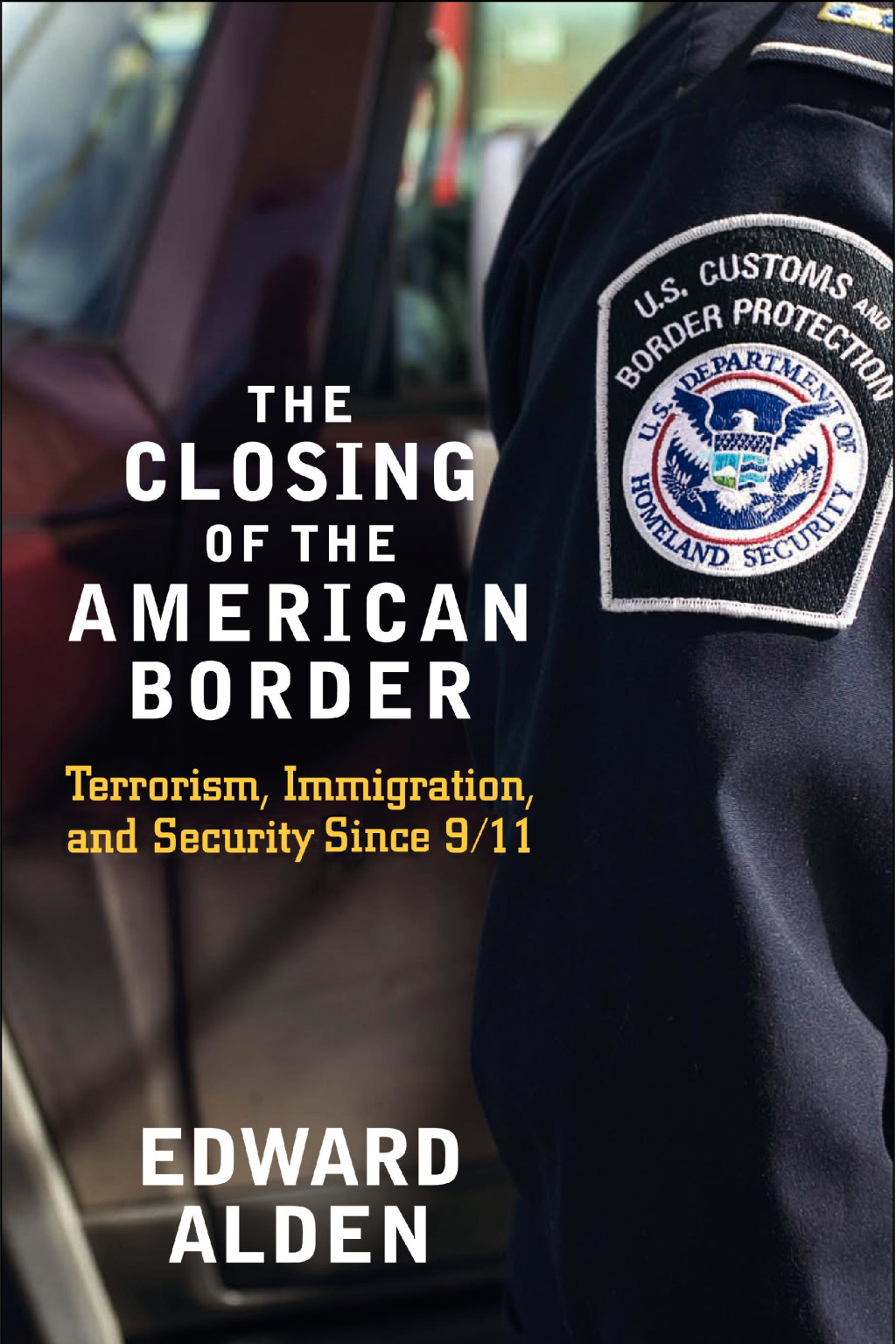The Closing of the American Border
Terrorism, Immigration, and Security Since 9/11
Edward Alden goes behind the scenes to tell the story of the Bush administration’s struggle to balance security and openness in the wake of the September 11, 2001, terrorist attacks.

- Publisher
- A CFR Book. HarperCollins
- Release Date
- June 2008
- Pages
- 368
- ISBN
- 978-0061558399
Immigration policy and border security will be among the most difficult and urgent issues facing the next president and Congress, regardless of who wins the presidency. In his new book, The Closing of the American Border: Terrorism, Immigration, and Security Since 9/11, CFR Senior Fellow Edward Alden argues that the stricter immigration policies enacted by the U.S. government in the aftermath of 9/11 cut the United States off from the rest of the world and have had serious economic and diplomatic consequences: “America’s near-term security against terrorist attacks has been strengthened, but its longer-term security, which relies on a vibrant economy and on strong relations with the rest of the world, has been compromised.”
The book is based on extensive interviews with Bush administration officials, including former Department of Homeland Security secretary Tom Ridge and former Secretary of State Colin Powell, and with many individuals whose lives were upended by the new rules. Alden reveals that the administration, despite its appearance of unity in the aftermath of 9/11, was wracked by internal divisions over how to balance security and openness. Officials who believed that the United States had flourished because of its openness to immigrants and respect for due process clashed repeatedly with those who saw immigration law as a potent tool. “The disagreements were all about fundamentally the same issue: with the president having declared a global war on terrorism, how broadly and aggressively should the administration use immigration and border enforcement as weapons in the new war?” The result was that, while some valuable security improvements were made, the United States made it far more difficult for talented people to come in, robbing itself of many of the world’s best and brightest.
The Closing of the American Border cites statistics demonstrating the impact of the new policies: between 2001 and 2003, the number of U.S. visas issued to foreigners fell by a third. Overall, ten million fewer people traveled to the United States in 2003 than had in the year prior to the attack. U.S. companies suffered losses in the billions as visa backlogs stretched for months. The longer-term economic implications could be even greater—foreign students, many of whom remain here and now make up nearly half of our country’s scientists and engineers, are increasingly going elsewhere. “Visa delays have also made it harder to attract foreign investors to the United States, which has long been one of the most investment-friendly countries in the world. State government officials charged with enticing foreign investors to their locales say that the difficulty of obtaining visas for foreign businesspeople is one of their biggest obstacles.”
Alden argues that “other impacts of discouraging foreigners from traveling to or emigrating to the United States are harder to measure, but no less significant.” He cites a 2006 travel industry survey that found that nearly three-quarters of those who have traveled to the United States have a favorable or extremely favorable view of the country, compared with just half of those who have never been here, writing that a United States that cuts itself off from the rest of the world “has deprived itself of the most persuasive thing it can offer—the example of what it has achieved at home.”
The Closing of the American Border offers an analysis of the economic and diplomatic costs the United States has paid for making it harder for foreigners to travel, live, and work here, and argues for the need to restore the openness that had been the hallmark of U.S. immigration policy prior to 9/11.
A Council on Foreign Relations Book
Reviews and Endorsements
Selected as a Finalist for the 2009 J. Anthony Lukas Book Prize
[B]rilliant ... a superb text for policy makers who must wrestle with the challenges of border security and immigration policy.
Compellingly argued and meticulously researched.
His book reads like a case study in good intentions and bad effects.
[A s]ensible, carefully constructed roundup of recent border security measures by the U.S. government, analyzing their degrees of success and failure. ... [A] cogent analysis.
Kirkus Reviews
Alden provides a thoughtful and balanced assessment of border security and immigration policies before and after the terrorist attacks on September 11, 2001 ... engaging and urgent.
Publishers Weekly